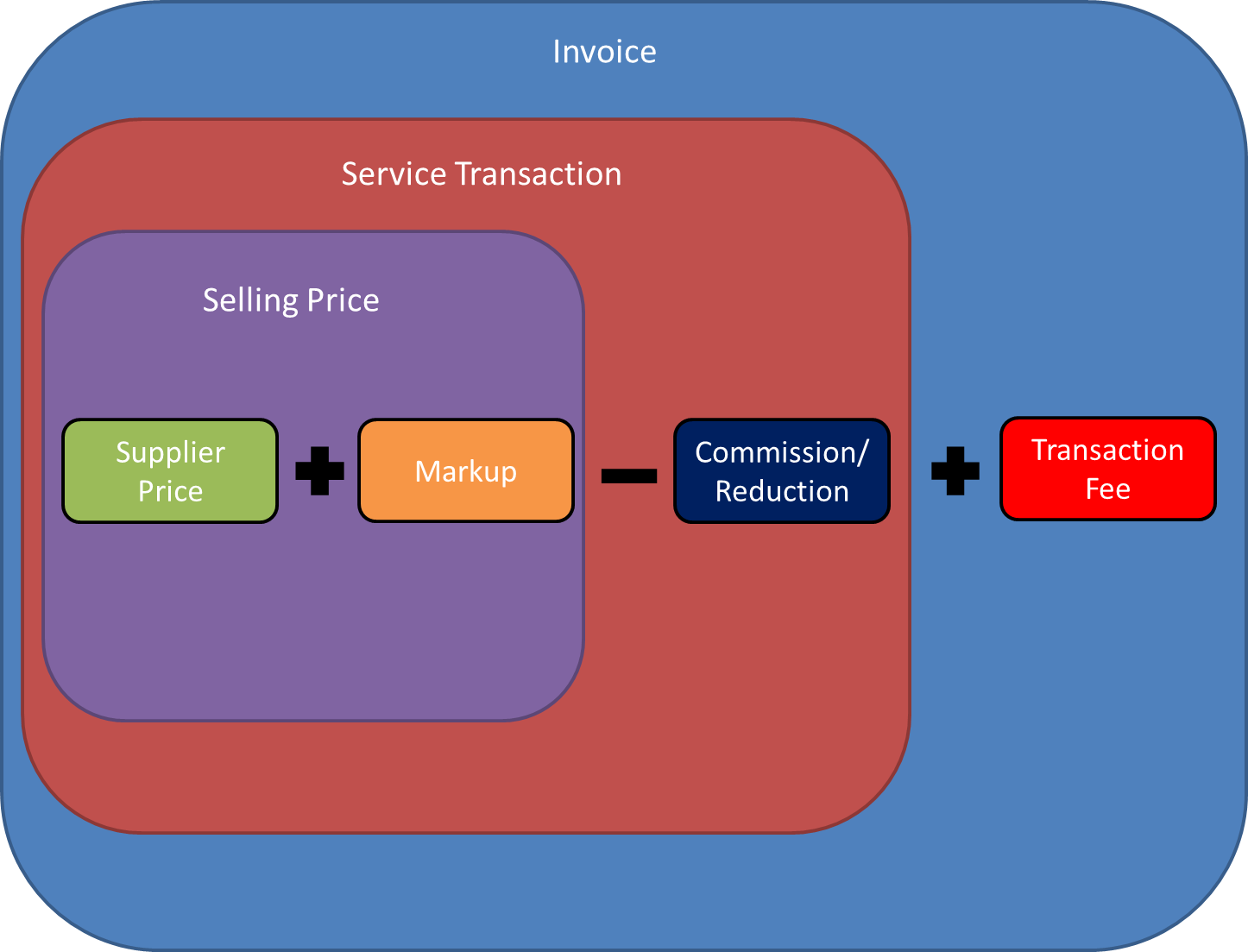

The system includes various mechanisms for defining a company's business rules that affect the total selling price to the customer, including transaction fees, markup, and commissions/reductions.
Markup and Commissions/Reductions are part of the transaction. Transaction fees are a separate entity. Markup is added on top of the supplier price to create the selling price that is displayed to the customer. Travel agents/corporate clients receive commissions/reductions that are deducted from the selling price. Transaction fees are a separate fee that is added to the travel file for services provided to the customer. These can be transaction fees that are related to specific actions performed in the travel file, such as issuing tickets, amending reservations, or reissuing new tickets. Or, there can be a more general transaction fee, such as opening a new travel file, or issuing a report.
The Markup mechanism allows you to define rules for adding markup to the price of services purchased from the supplier. Markup rules are flexible, and you can define them according to a wide range of parameters, such as specific selling channels, travel agents/corporate clients, service types, service providers, destinations, and also service dates and reservation dates.
Markup rules are cumulative, which means that specific rules can be combined together to create a larger markup percentage.
For example: If there is a 2% markup on the B2B selling channel, 1% markup to the ABC tours travel agent, and 3% markup on hotels in London. If ABC tours uses the B2B selling channel to reserve a hotel in London, the total markup which is added on top of the supplier price is 6%.
The Commission/Reduction mechanism allows you to define rules for granting commissions to travel agents or reductions to corporate clients and private customers. The commission/reduction can be either a fixed amount or a percentage of the transaction. You can choose whether or not the rule should be applied on taxes.
The commission/reduction rules are flexible and can be defined for a wide variety of parameters, such as service types, destinations, suppliers, price levels, and price components.
With commission/reductions, specific rules override general rules.
For example: If there is a 2% reduction on flights, a 5% reduction on flights to Amsterdam, and a 4% reduction on flights to Amsterdam through KLM. When reserving a flight to Amsterdam through KLM, the 4% reduction rule is applied.
With travel agents/corporate clients, you can copy and delete all rules created for a specific travel agent/corporate client.
The Transaction Fee mechanism allows you to create rules for adding separate fees to the travel file for various services and actions related to the management of the trip, which the company provides, effectively allowing you to charge customers for the actual work that is invested in handling the travel file. You can define rules that automatically add a transaction fee to the travel file after specific actions, such as reserving, modifying, ticketing, reissuing, or cancelling a service, and you can define rules that allow users to manually add transaction fees for services they perform, such as issuing a report. You can also create a general transaction fee for opening the travel file. You can define separate fees for direct sales, individual travel agents/corporate clients, and groups of travel agents/corporate clients, and separate fees for different destinations, services, or suppliers. The transaction fee can be a percentage of the transaction or a fixed amount.
The system allows you to charge additional amounts to the transaction fee for actions that were performed after the office hours, or on days when the branch is closed.
With travel agents/corporate clients, you have the option of issuing a separate invoice for transaction fees. You can also copy and delete all rules created for a specific travel agent/corporate client.
For each transaction fee rule, you have the option of defining whether the transaction fee includes VAT. If VAT is applied, it is included within the transaction fee.